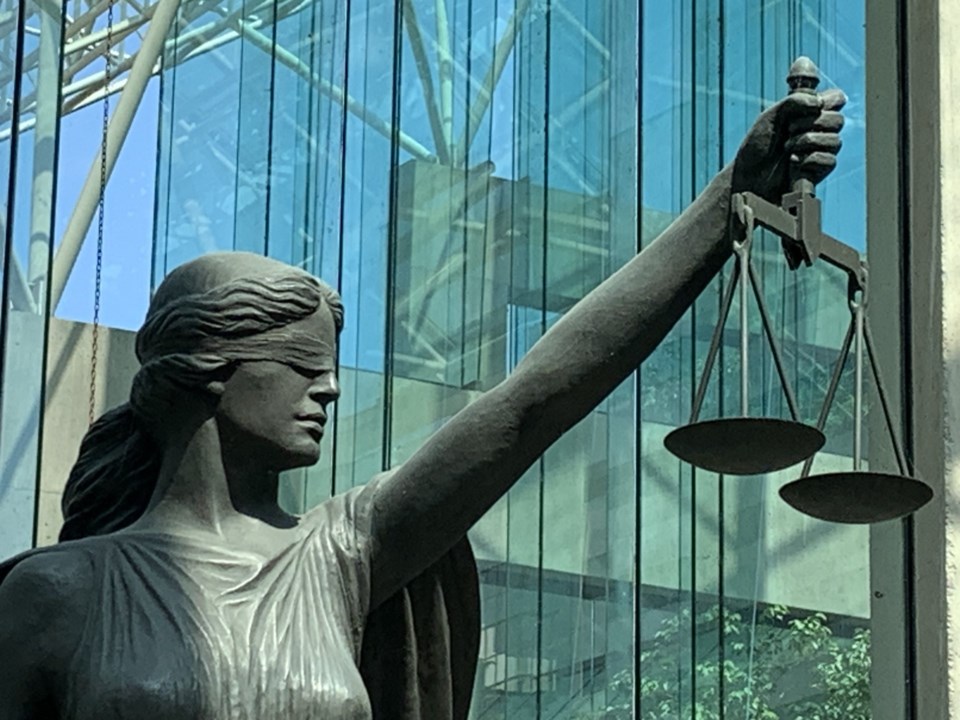B.C.’s top court has dismissed a case in which a B.C. Supreme Court judge ruled in 2023 that the province pay $10.125 million after it denied permits to a company that wanted to build a run-of-the river power project near Squamish.
Appeal court Justice Joyce DeWitt-Van Oosten said in the unanimous decision of the three-judge court that the liability finding in the lower court reflected a palpable and overriding error of fact, “namely, that a 'final decision' was unlawfully made for the water licence by someone other than the statutory decision-maker, and fettered her discretion.”
It was the province that appealed Justice Kevin Loo’s Oct. 10, 2023 decision.
There, he said the plaintiff, Greengen Holdings Ltd., “lost an opportunity to achieve a completed and profitable hydro-electric project” after government representatives wrongfully exercised their legal authority, a transgression described in the ruling as “misfeasance.”
Between 2003 and 2009, the company sought to develop a hydro-electric project on and around Fries Creek, which sits opposite the Brackendale neighbourhood on the other side of the Squamish River. To do so, Greengen Holdings Ltd. required a water licence from the Minister of the Environment and tenure over Crown land from the Minister of Agriculture.
After a lengthy process involving extensive communications between Greengen and various provincial and other ministries and regulatory agencies, the permits were denied, according to Loo. Both decisions cited impacts on Squamish Nation cultural sites that could not be mitigated.
Greengen asserted that the decisions were not made for reasons set out in the permit denials “but for collateral political purposes related to the Province’s relationship with the Squamish Nation (SN) and its desire to avoid a lawsuit from the SN,” Loo said in the ruling.
It was after Loo’s ruling that Greengen applied to re-open the trial on the basis of an alleged mathematical error in the calculation of damages that would increase the award to $21.065 million.
“The judge granted the application to re-open, but declined to revise the damages award,” the appeal ruling said.
The appeal decision
The province advanced six grounds of appeal, including that “the judge erred in finding liability for misfeasance in public office without definitively deciding who made the decisions that were found to be unlawful.”
DeWitt-Van Oosten agreed.
DeWitt-Van Oosten said in addition to the overriding error, Loo erred in his analysis.
She said Greengen required both Crown land tenure and a water licence to proceed with its proposed hydro-electric project. And, she said, the decision-maker testified that, even had land tenure been granted, she would not have issued a water licence.
Further, DeWitt-Van Oosten there was no causation established to prove malfeasance in public office. As such, the case had to be dismissed, she ruled.
40-year electricity plan relied on Crown land
The case dates back to December 2005, when BC Hydro issued an open call for power with Greengen. The company submitted a tender several months later.
On July 26, 2006, BC Hydro awarded Greengen an energy purchase agreement under which Greengen would be entitled to supply electricity at a fixed price for 40 years.
Unlike conventional hydro-electric projects, which store large volumes of water in reservoirs, and in so doing flood large tracts of land, a run-of-the-river project often requires little or no water storage. Instead, from a high elevation, they divert water from a stream or river channel.
Water is then sent into a pressured pipeline known as a penstock, and later passed through turbines to generate electricity, Loo explained. The system returns water to the original stream or river, or into another body of water.
The project called for most of that infrastructure to be built on Crown land, according to the ruling.
In early 2005, company principle Terry Sonderhoff discussed the Fries Creek project in a preliminary meeting with Squamish Nation Chief Ian Campbell.
“Mr. Sonderhoff testified that Chief Campbell seemed supportive of the project at the time,” Loo said.
Another meeting was held with Campbell and Dave Ingleson of the Integrated Land Management Bureau (ILMB), part of the Ministry of Agriculture and Lands.
“Ingleson recalled the tenor of this meeting as being positive, constructive, and businesslike,” Loo said.
In April 2007, Greengen submitted a development plan to the province regarding its land tenure and water licence applications.
“This was a voluminous document which included, among other things, information regarding the expected environmental impact of the project, hydrology, and an archaeological assessment, Loo said.
Squamish Nation refuses project
On April 27, 2007, the Squamish Nation wrote to the ILMB saying it did not agree with the proposal, that it had a right to consultation on use of the “sensitive ecological and spiritual area.”
The nation later rejected the proposal.


